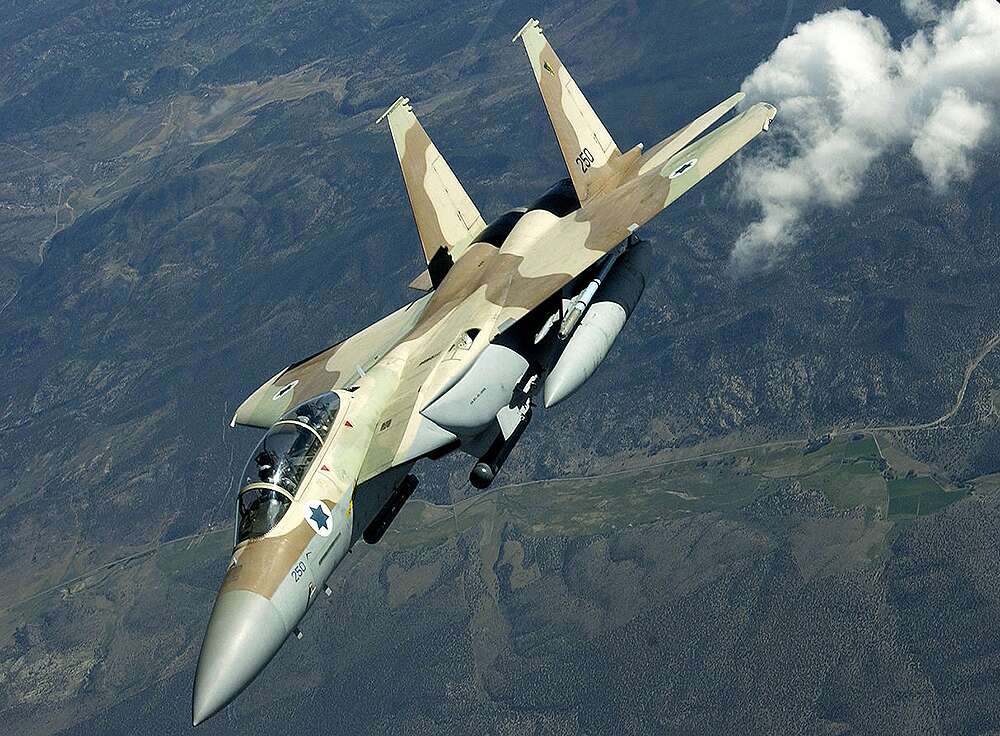Multiple outlets are reporting that Russia has delivered a message to the Israel government on behalf of Syria’s Assad regime stating that any more Israel Air Force strikes into Syrian territory will be answered with a barrage of Scud missiles. In particular, it describes what will be targeted and why. If a Israel air strike hits civilian infrastructure, Syria will launch missiles aimed at Israel’s port in Haifa as well as its nearby petrochemical plant. If strikes hit Syrian military-related targets, the Scud missiles will be targeted at Israel Defense Force bases.
The message brings a whole new level of potential escalation to what have been brewing tensions between Damascus and Jerusalem. It started on March 17th when Israeli warplanes were fired upon by Syrian surface-to-air missile sites after executing an air strike in southern Syria. The IAF had made dozens of similar bombing runs over the last five years, focused on taking out weapons shipments destined for Iranian-backed Hezbollah fighters in Lebanon. The Syrian SAMs missed their targets but one was intercepted by an Israel Arrow anti-ballistic missile system battery—a system that is designed to take out ballistic missiles like the Scud, not a Soviet-era SA-5 SAM.

A few days later, after the Assad regime made it clear that any IAF jets that make forays into Syrian airspace will be engaged, the head of the Israel’s Ministry of Defense made it clear that the IAF would “destroy Syria’s air defenses without thinking twice” if their jets were fired upon. Meanwhile, Russia summoned Israel’s ambassador, which sent rumors flying that Moscow had told Israel that it will no longer allow the strikes in Syrian territory to occur—a move that has been hinted at for many months.
Following these reports, Benjamin Netanyahu stated “it’s simply incorrect to say the Russians are changing their policy toward us,” although what exactly is going on behind closed doors remains a mystery. Over the last week, Israel has only ramped up its strikes in Syria, with multiple missions being carried out including the assassination of a militant leader with close ties to the Assad regime. Since the Syrian civil war began six years ago, Israeli air strikes in Syrian territory were far less frequent, and the Israeli government did not officially even admit that they had been occurring until Syria fired on the IAF’s jets nearly two weeks ago.
As far as Syria’s ability to carry out such a counterstrike against Israeli targets—there is no doubt that the Assad regime still retains hundreds of Scud derivatives of various origins. These include copies from North Korea and from Iran. Since the conflict in Syria began, Assad’s forces have used Scuds against their own people on numerous occasions.
Israel has an extremely capable anti-ballistic missile defense system that has a multitude of layers aimed at countering everything from small improvised artillery rockets to medium-range ballistic missiles. Still, a barrage of short-range ballistic missiles from Syria, even if they are all intercepted or fail to hit their targets, would result in a major IAF operation to route Assad’s ballistic missile capabilities, and could even include the targeting of Syrian command and control or regime targets as well.
If Israel were to react to such a missile attack with a prolonged air campaign of their own over Syria’s already crowded skies, Iranian-controlled Hezbollah could be ordered to retaliate against Israel with scores of its own rockets and other advanced weaponry it has obtained from Iran in recent years. By all accounts, a war between Hezbollah and Israel will be far bloodier this time around than a decade ago, a grim reality Israel is actively planning for.
It doesn’t take much creativity to see how such a course of action could spiral the already highly convoluted Syrian conflict into a much wider war. Russia’s air defense systems at Tartus and at Russia’s master airbase south of Latakia could prove to a be a major tactical and geopolitical hazard for Israel should Russia officially deny Israeli movement through the area. The US, with its very close ties to Israel, would also be put in a tight spot as the Pentagon wishes to solely focus on the campaign against ISIS, not be drawn into a larger geopolitical affair with Russia and the Assad regime.
The Israeli government has been clear that it has no intentions of stopping its airstrikes on weapons shipments headed for Hezbollah. As such, the Assad regime’s latest threat will likely be put to the test in the coming days.
Contact the author: [email protected]





